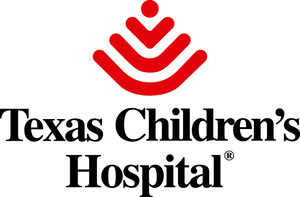Texas Children's Hospital demonstrates that school nurse educational program significantly improves safety for food allergic children
Research funded by Penland Foundation, Houston Independent School District and Texas Children's Hospital provides food allergy preparedness education
HOUSTON, Nov. 20, 2014 /PRNewswire-USNewswire/ -- Every six minutes a food allergy anaphylaxis sends someone to the emergency room and for the one in every 13 American children who have a food allergy, 40 percent are considered high risk for such an occurrence. For children, 25 percent of first-time anaphylactic shocks happen at school and data shows that fatal episodes are often due to delayed administration of an injectable epinephrine. These facts drove a team of healthcare providers led by Dr. Carla M. Davis, a specialist in Pediatric Immunology, Allergy and Rheumatology at Texas Children's Hospital and assistant professor of pediatrics at Baylor College of Medicine, to initiate an educational program in the Houston Independent School District (HISD).
The pilot program included a one-time seminar for school nurses that significantly impacted school preparedness for food allergy reactions, and resulted in research titled, "Educating School Nurses in Food Allergy Sustainability Increases Epinephrine Availability" published in the January/February Issue of the Journal of Allergy and Clinical Immunology: In Practice. The team from Texas Children's initiated a controlled education session targeting HISD, an urban U.S. school district. The research team created a simple, targeted way to increase access of injectable epinephrine devices (IEDs) and provide education for life-saving treatment to school nurses in HISD; a plan that can be replicated on a global level to enhance the care and safety of FA children worldwide.
"It is extremely important for parents to communicate with their children's schools any known food allergies," says Davis. "It is equally important for schools to be prepared with proper training and inventory of injectable epinephrine devices in the event of an accidental exposure. With the proper communication, training and supplies, we can significantly decrease the number of allergic reactions at schools."
In 2013, President Obama signed into law the School Access to Emergency Epinephrine Act, providing incentives for states to require schools to stock unassigned epinephrine. However, without nurse training on the appropriate use of IEDs, children will continue to be at risk of death from food anaphylaxis in schools. Every child with life threatening food allergy needs an IED at their school to treat anaphylaxis and prevent delayed administration and death.
"In my opinion this research is transformative and monumental." says Dr. Jordan Orange, chief of Immunology, Allergy and Rheumatology at Texas Children's and professor of Pediatrics, Pathology and Immunology and vice chair of research, Department of Pediatrics, Baylor College of Medicine, of this research. He continues, "These findings show how a one-time educational intervention in schools can have a durable and profound impact on the safety of our children. We are proud to have developed a simple, effective solution to a life-threatening problem that can be easily replicated in school districts across the country."
The next phase of the program includes targeting more regions within HISD and select areas in Ohio and Virginia.
The food allergy program at Texas Children's Hospital has received generous support from the Food Allergy Advisory, the Surlock Foundation and the Penland Foundation. For more information about the food allergy program at Texas Children's Hospital or this study, please visit the website, http://www.texaschildrens.org/Food-Allergy-Clinic/
The full study can viewed online, http://www.jaci-inpractice.org/article/S2213-2198%2814%2900413-9/abstract
About Texas Children's Hospital
Texas Children's Hospital, a not-for-profit health care organization, is committed to creating a healthier future for children and women throughout the global community by leading in patient care, education and research. Consistently ranked as the best children's hospital in Texas, and among the top in the nation, Texas Children's has garnered widespread recognition for its expertise and breakthroughs in pediatric and women's health. The hospital includes the Jan and Dan Duncan Neurological Research Institute; the Feigin Center for pediatric research; Texas Children's Pavilion for Women, a comprehensive obstetrics/gynecology facility focusing on high-risk births; Texas Children's Hospital West Campus, a community hospital in suburban West Houston; and Texas Children's Hospital The Woodlands, a second community hospital planned to open in 2017. The organization also created the nation's first HMO for children, has the largest pediatric primary care network in the country and a global health program that's channeling care to children and women all over the world. Texas Children's Hospital is affiliated with Baylor College of Medicine. For more information, go to www.texaschildrens.org. Get the latest news by visiting the online newsroom and Twitter at twitter.com/texaschildrens.
Christy Brunton
832-824-2645
[email protected]
SOURCE Texas Children's Hospital
Related Links
WANT YOUR COMPANY'S NEWS FEATURED ON PRNEWSWIRE.COM?
Newsrooms &
Influencers
Digital Media
Outlets
Journalists
Opted In






Share this article